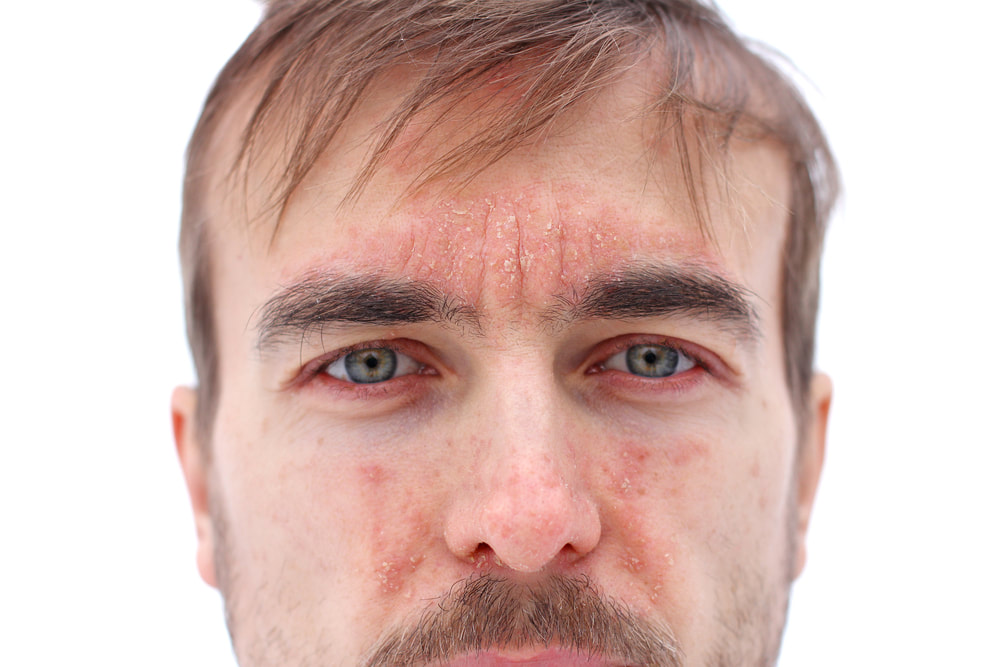What is psoriasis around the eyes?Psoriasis is an inflammatory skin condition that develops due to an overgrowth of skin cells. New skin cells develop in our bodies, which is usually needed to maintain healthy skin. But in people that have psoriasis, their immune system causes excess production of skin cells. The extra cells form patches on the skin. In some cases, psoriasis can develop on the eyelids or around the eyes. Although it is more common in other areas of the body, it does occur on the eyelids. According to the International Journal of Trichology, about ten percent of people with psoriasis develop symptoms around their eyes. When the eyes are involved, symptoms may include the following:
Psoriasis appears to develop when the immune system overreacts to the body’s own skin cells. The reaction causes an increase in new skin cells. It is not clear why some people develop psoriasis, but it appears to run in families. Treatment for psoriasis around the eyes and the eyelidsThe extent of symptoms around the eyes due to psoriasis can vary. Keep in mind, not all flareups of psoriasis will involve the eyes. Also, mild cases may be easy to treat. But in some instances, the patches can become so large, it causes significant irritation.
Treatment that works well for skin in other areas of the body may not be recommended for around the eyes. Since the skin around the eyes is delicate, it is important to avoid overusing treatments and pay attention to adverse side effects. Treatment of psoriasis around the eyes and the eyelids may include the following: Topical creams: In some instances, creams applied directly to the affected area may be recommended. Different types of medications may be prescribed. For example, steroid creams may be used to decrease inflammation and scaling. But these topical creams should be used carefully and only short term. They can lead to complications if used too long. Also, avoid getting the medications in the eyes, which can cause irritation. Oral medications: If symptoms are severe and do not respond to topical treatment, oral medications may be prescribed. Different types of medications are available, including oral steroids, retinoids, and methotrexate. Some of these drugs can have adverse side effects. For example, oral steroids can lead to anxiety, trouble sleeping, and weight gain. In most cases, oral medications are only used for a brief time to help manage a flareup of psoriasis. Phototherapy: Phototherapy involves exposure to UV light on a regular basis as prescribed by a doctor. The treatments can be performed at a doctor’s office or by using a home phototherapy unit. Usually, doctors do not recommend using sunlight for the treatment. According to the National Psoriasis Foundation, sunlight is not as effective at treating psoriasis as a phototherapy unit. Biologic therapy: Biologic therapy is a newer treatment for psoriasis. It involves drugs that target specific parts of the immune system to stop overproducing skin cells. The medications may help decrease the severity of symptoms and the frequency of flareup. Research continues on additional treatments and therapies for treating psoriasis. The best treatment option may depend on how often symptoms develop and how severe symptoms around the eyes are. If you have any additional questions or have symptoms of psoriasis around the eyes, we are happy to help. Also, if you would like to ask whether an appointment with one of our eye doctors would be appropriate at this time, call our office at 508-746-8600. Comments are closed.
|
EYE HEALTH BLOGCategories
All
Archives
July 2024
|
|
Kadrmas Eye Care New England
55 Commerce Way, Plymouth, MA 02360
14 Tobey Road, Wareham, MA 02571 133 Falmouth Road (Rt 28), Mashpee, MA 02649 |
Phone Number:
1-508-746-8600 Hours: Monday through Friday — 8 AM – 4:30 PM |


 RSS Feed
RSS Feed
